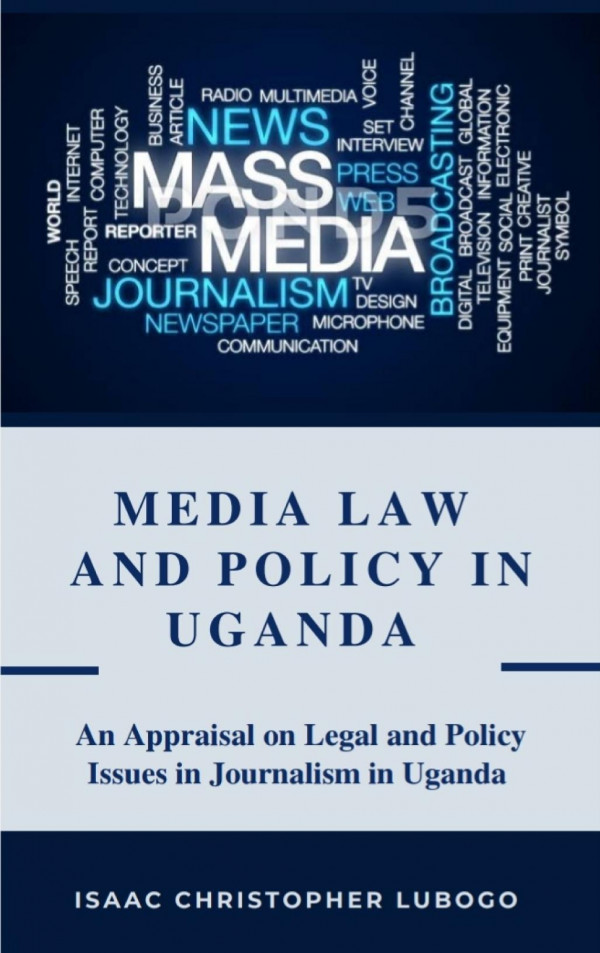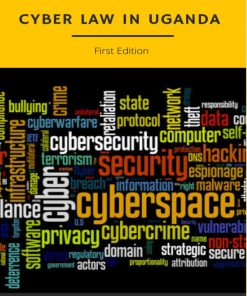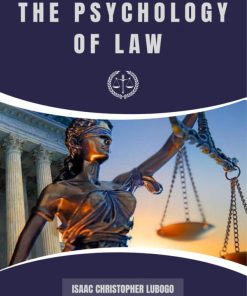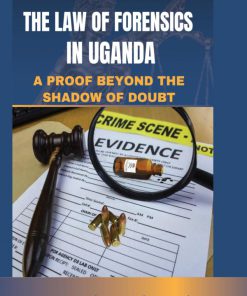Media-Law-and-Policy-in Uganda by Isaac Christopher Lubogo
$50.00 Original price was: $50.00.$25.00Current price is: $25.00.
Media-Law-and-Policy-in Uganda Isaac Christopher Lubogo – Ebook Instant Download/Delivery
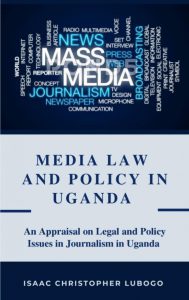
Product details:
- Author: Isaac Christopher Lubogo
About The book
Freedom of opinion and freedom of expression are the foundation for every free and democratic society, a necessary condition to realise the principles of transparency and accountability we need to protect human rights (and) the basis for the full enjoyment of many other human rights. Though free speech was declared by the United Nations in 1948 to be a universal right, that is a hope, not reality.
A nation’s media laws and policies are touchstones of its commitment to freedom of opinion and freedom of expression. A nation’s openness to reform and willingness to balance competing interests in ways that enhance free speech are a product of its history, cultures, political contexts, and legal system. In most jurisdictions, the process of reform in media law and policy has customarily moved slowly. Advocates on either side of a dispute sift generations of theory, custom, precedent, and practice to propose answers to new questions that arise in free speech. Reform considerations often grow out of major advances in media technology, from moveable type, for example, and on to the camera, radio, and television. In the early 1990s, the Internet arrived in a new user-friendly form known as the World Wide Web and changed communications forever. With its interactive global platforms, millions of websites, and billions of users, the Internet heavily taxes the capacity of all jurisdictions to devise legal and regulatory responses to questions that began coming into view at light speed.
Still, media law and policy reform has and is taking place, sometimes in a major and liberating way, such as with the UK’s Defamation Act of 2013, but more often in patchwork and restrictive ways as courts, legislators and regulators wrestle with grand dilemmas presented by the Internet and for twenty-first century communications. Fundamental questions are being re-examined: who is a journalist, who is a publisher etc The questions are so large they seem philosophical, with no possible single answer, but the main purpose of media law and policy is to balance competing interests and uphold free speech.
In essays by some of the world’s leading authorities on media law and policy in the Internet age, this book examines the opportunities and perils for media freedom and practice in an era of technology-driven change in Uganda. The essays explore the complications and contradictions of change and the consequences now and in the future for ‘traditional’ publications and journalists, for new online publications, and for people who take to Internet platforms to distribute ideas and opinions, theirs or those of others, to anyone in the world with a computer, smartphone or technology not yet devised, and who sometimes unwittingly subject themselves, potentially, to legal sanctions.
This book is not a catalogue of media law and policy reforms across the world, but instead is an examination of several key reforms to illuminate issues in current and historical, constitutional, and international contexts, with lessons and insights for those involved in different jurisdictions and stages of reform especially Uganda. Its author also defines the unique elements of the new media landscape and trace the ‘very long process’ of ‘gradually protecting more speech’ through both statute and case law in order to build a conceptual structure for considering the future.
People also search:
media-law-and-policy-in uganda
media laws in uganda
media law in uganda
ku media and the law seminar
social media law in uganda
You may also like…
Jurisprudence & Law - General & Miscellaneous Law
Jurisprudence & Law - Environmental Law
Sustainable Environmental Law: The Future for Uganda Lubogo Christopher Isaac
Jurisprudence & Law - Courts & Trial Practice
The law on professional malpractice in Uganda 1st Edition Lubogo Christopher Isaac
Commercial & Financial Law
The Law of Oil and Gas in Uganda 1st Edition Lubogo Isaac Christopher
Jurisprudence & Law - General & Miscellaneous Law
Jurisprudence & Law - General & Miscellaneous Law
Jurisprudence & Law - Intellectual Property
Commercial & Financial Law
Forensic Science
The Law of Forensics in Uganda 1st Edition by Isaac Christopher Lubogo ISBN B09N8YFDN2

